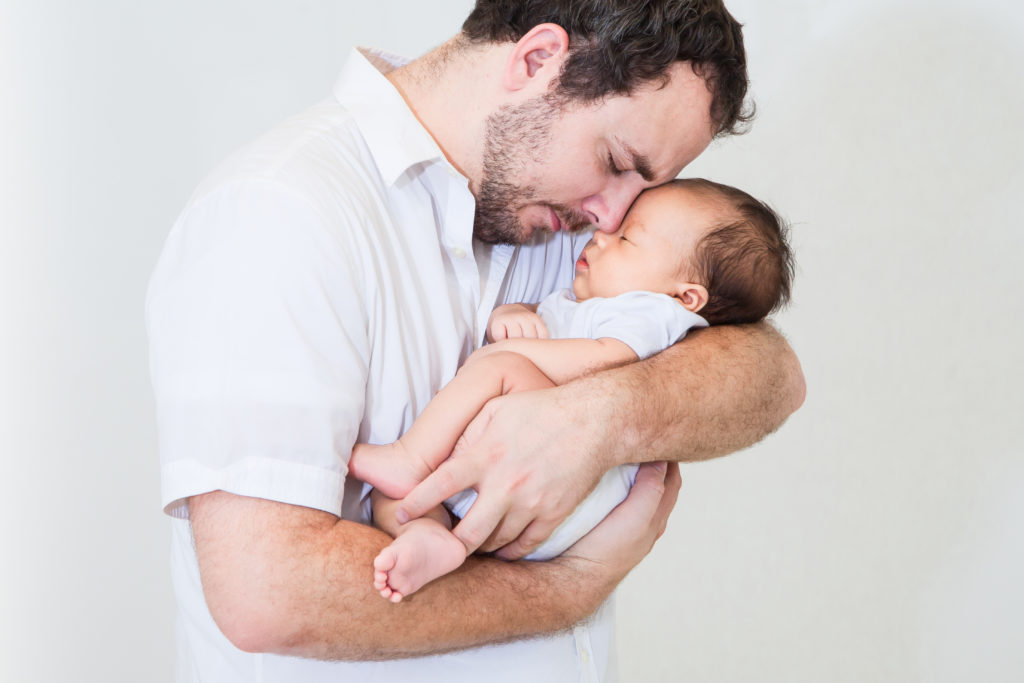Quick Hits
Daily brief research updates from the cognitive sciences

We know that mothers go through multiple physical and psychological changes after birth (and before) including change in brain structures. That may sound surprising to the uninitiated – and it is fascinating. But that has been reasonably well researched.
What, however, has not been well researched, barely at all is that of the father. There have been some psychological studies showing that men do become more caring, but also that their testosterone does also drop. Presumably to help prime the body and brain for more caring – though I reported previously on the complicated role of testosterone.
But is this matched by changes in the brain – here at leading brains we know that if there is a behavioural change there will be a biological, brain, change. And this is precisely what a group of Spanish and US researchers around Magdalena Martínez-García have found out and described in a recently published paper.
The findings are interesting also because they do not show change to some regions we might expect. For example, in mothers changes in the brain limbic regions has been noted. This region is considered our emotional centre so unsurprising. But this region did not seem to change in fresh fathers.
What was, however, seen are small changes in the prefrontal regions, particularly in areas that are associated with something called the default mode network. This is a region that is active when doing nothing but also is involved in so-called mentalizing tasks i.e. being able to think about what other people think – this could be seen as an increase in ability to empathise. Similarly, some of the changes in the prefrontal regions are in regions that are associated with social functions in human beings.
Another area that showed changes was in the visual area – this suggests a change in visual capabilities maybe referring to sensitivity in responsiveness to different visual cues i.e. of a little baby rather than hunting for deer.
The study involved 20 men whose brains were scanned before or after the birth of their first child and a control group of 17 childless men. So, it wasn’t a large scale study but gives us our first glimpse into the changes that men’s brains go through with the birth of their first child.
This hints at increased empathy, changed sensitivity to visual stimuli, and increased social functions. All in pretty good.
On a different note, in case, any of you men are worried, is that men are seen as more positive as fathers, and interestingly “manly” traits (such as strength) are still associated with fathers but also in addition with more caring traits – and this shows in the brains.

Andy Habermacher
Andy is author of leading brains Review, Neuroleadership, and multiple other books. He has been intensively involved in writing and research into neuroleadership and is considered one of Europe’s leading experts. He is also a well-known public speaker, speaking on the brain and human behaviour.
Andy is also a masters athlete (middle distance running) and competes regularly at international competitions (and holds a few national records in his age category).
References
Magdalena Martínez-García, María Paternina-Die, Sofia I Cardenas, Oscar Vilarroya, Manuel Desco, Susanna Carmona, Darby E Saxbe,
First-time fathers show longitudinal gray matter cortical volume reductions: evidence from two international samples
Cerebral Cortex, 2022;, bhac333
https://doi.org/10.1093/cercor/bhac333
More Quick Hits
What Makes Human Brains Different?
Those who have followed my writing and articles will know that this is a question that comes up regularly. Just what is different to human brain compared to other species?
Brain Centre For Altruism Identified
Various parts of the brain have been associated with social behaviour but this particularly interesting study looked at effortful decision-making to help others and identified a region that only activates to this.
Genes Or Exercise for Living Longer?
We all know that we should get our exercise. And we all know that this is associated with many positive health outcomes. This includes living longer.
Yay! “Inoculation” Against Misinformation Effective
Wouldn’t it be great in the current world if we could inoculate people against misinformation. Sigh! But that will never happen
Lack Of Sleep Makes Us Selfish
We humans are a social species, we do things in groups, gather in restaurants, bars, music venues, and public spaces together.
Don’t Try to Change Minds – Change Behaviour
Don’t try to change minds, but simply change behaviour is the result a group of researchers have come to with regard to vaccinations.






